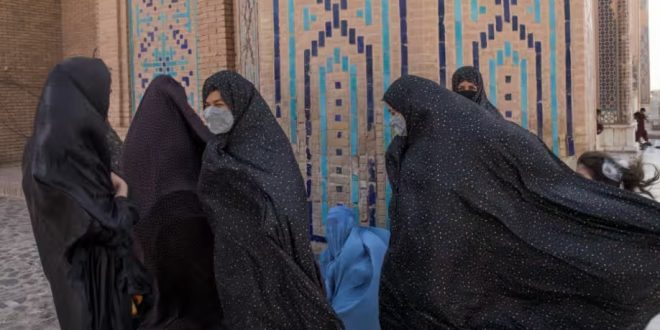Taliban sending abused Afghan women to prisons, UN report reveals

KABUL – In a recent report released by the United Nations Assistance Mission in Afghanistan (UNAMA), it has been disclosed that the Taliban are resorting to sending women to prisons as a measure to protect them from gender-based violence. The report, issued on Thursday, highlights that this practice is implemented when women lack male relatives to stay with or when their male relatives are deemed unsafe.
The most prevalent forms of gender-based violence reported against women and girls include murder, often linked to so-called ‘honour’ motives, rape, causing injury or disability, and the deprivation of inheritance, according to the report. Complaints received by the de facto police, prosecution units, and courts reflect these distressing realities.
De facto Departments of Justice mainly handle complaints related to the deprivation of inheritance and prevention of possession of personal property, while the Departments of Propagation of Virtue and Prevention of Vice address complaints ranging from deprivation of inheritance to prohibition of marriage, forced marriage, and instances of battery and laceration.
The UNAMA report also reveals that, according to the Taliban, women are sent to prisons for protection, drawing a parallel with the use of prisons to accommodate drug addicts and homeless individuals in Kabul. To ensure the safety of survivors, de facto officials reportedly request commitments, including sworn statements, from the survivor’s male relatives, and involve local traditional elders to witness these guarantees.
Since the Taliban assumed control of Afghanistan in August 2021, women and girls in the country have faced increasing restrictions, including limitations on education, barring from public spaces and most jobs. The report emphasizes that many survivors of gender-based violence prefer traditional dispute resolution mechanisms due to fear of the de facto authorities.
The lack of clear delineation of responsibilities among various de facto institutions in handling complaints of gender-based violence, coupled with an absence of women personnel in these institutions, contributes to survivors’ lack of trust in the de facto justice system. The report calls attention to the need for a clearer distinction between complaints of gender-based violence against women and girls of a criminal nature and those of a civil nature within the de facto authorities.
Culled from Afghanistan Times

